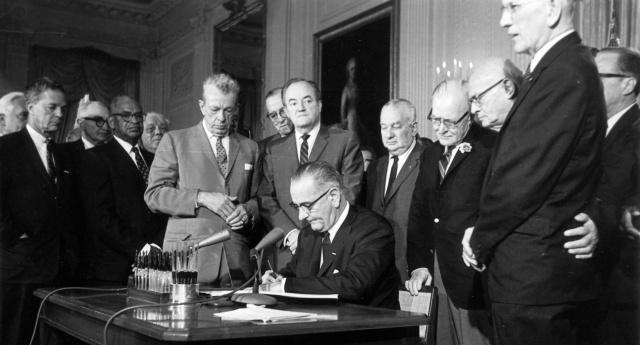
Passed more than 50 years ago, the Civil Rights Act provision Title VII prohibits employers from discriminating against employees on the basis of sex, race, colour, national origin and religion, but does not explicitly include protections for LGBT people.
In a landmark ruling this week, a federal judge in Pittsburgh agreed with the US Equal Employment Opportunity Commission (EEOC) in affirming that the protected characteristic of sex logically includes sexual orientation.
In her ruling, Judge Cathy Bissoon wrote,“There is no more obvious form of sex stereotyping than making a determination that a person should conform to heterosexuality. As the EEOC states, ‘discriminating against a person because of the sex of that person’s romantic partner necessarily involves stereotypes about ‘proper’ roles in sexual relationships – that men are and should only be sexually attracted to women, not men’. That someone can be subjected to a barrage of insults, humiliation, hostility and/or changes to the terms and conditions of their employment, based upon nothing more than the aggressor’s view of what it means to be a man or a woman, is exactly the evil Title VII was designed to eradicate.”
The case had come about after a Dale Baxley, a gay employee at the centre, alleged he was subjected to harassment because of his sexual orientation. Baxley contends he was referred to by his supervisor as a “fag,” “faggot,” “f**king faggot” and “queer”.
Scott Medical Health Center had argued that the lawsuit had no grounds because there is no law outlawing discrimination based on sexual orientation.
Sarah Warbelow, Legal Director, Human Rights Campaign said, “This is an important win for LGBTQ equality. Judge Bissoon’s decision affirms that discrimination against an individual based on their sexual orientation is fundamentally a form of discrimination based on sex – which is prohibited by federal law. We congratulate the EEOC and the plaintiff on this victory.”
The Title VII issue may eventually end up before the Supreme Court, as the interpretation of the law is likely to cause a circuit split.





Be the first to comment